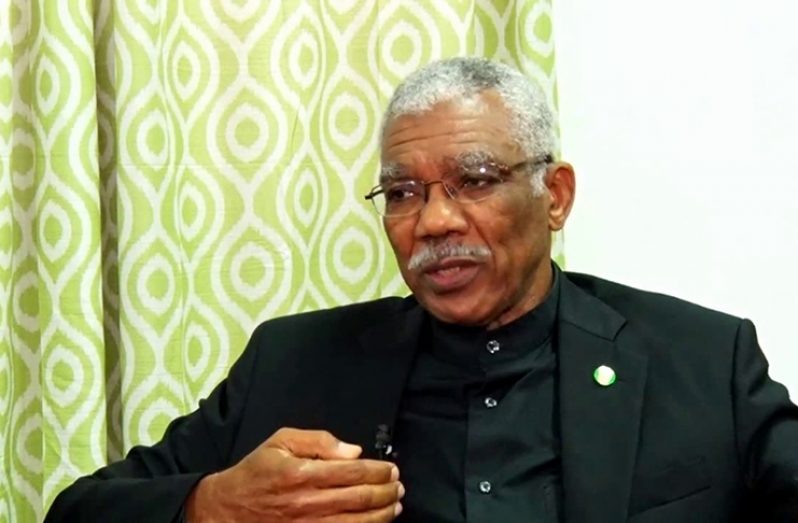PRESIDENT David Granger said he has not set a date for the dissolution of the Parliament of Guyana, on the grounds that the government may need approval from the National Assembly to access finance from the treasury in the event there is a matter of national importance.
“I will stay away from dissolution as long as there is likelihood that we would need a vote of the whole Parliament to pass any financial measure. Unfortunately from time to time sometime, because of urgent matters, such as a flood, a fire, we may need funds and only parliament can authorise the disbursement of funds which have not been provided for,” the Head of State explained.
He pointed out that due to the current political situation, the government, to date, has not drafted a budget for 2020, and is required to be very prudent in its expenditure.
“It means that if there is any extraordinary expenditure arising out of any unanticipated situation, whether it is an act of God, force majeure or any other, I feel that is prudent to keep the Parliament open as long as possible,” President Granger said.
Last September, the Head of State proclaimed that General and Regional Elections will be held on Monday, March 2, 2020. Constitutionally, the Parliament must be dissolved three months before an election.
“An election of members of the National Assembly under Article 60 (2) shall be held on such day within three months after every dissolution of Parliament as the President shall appoint by proclamation,” Article 61 of the Constitution states. As such, the Parliament of Guyana would have to be dissolved by December 2, 2019.
Early elections in Guyana were triggered when, on December 21, 2018, the Parliamentary Opposition – the People’s Progressive Party/Civic (PPP/C) – secured a one-seat majority in the House to defeat the government on a motion of no-confidence. Now recalled Member of Parliament, Charrandass Persaud, had used his vote in the House to support the motion, thereby giving the opposition an edge over the government in the 65-Member National Assembly.
The no-confidence motion was upheld by the High Court on January 31, 2019 but on March 22, 2019, the Court of Appeal, by a two-one majority, invalidated the motion on the basis that an absolute majority was not acquired although the opposition had secured an extra vote to defeat the government. It was not until June 18, 2019 that the Caribbean Court of Justice (CCJ) – Guyana’s final appellate court – validated the no-confidence motion. In handing down its consequential order on July 12, 2019, the CCJ stated clearly that the government, as a result of the passage of the no-confidence motion, will remain in office, though on a different footing, until a new President is sworn-in. He told the nation that it could now look to the Elections Commission to conduct credible elections within the timeframe prescribed. Guyana, President Granger said, is on the right path to preserve its precious parliamentary democracy.



.jpg)










